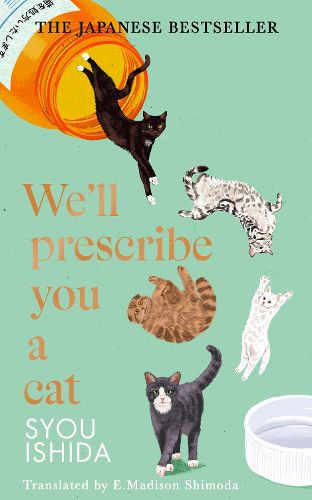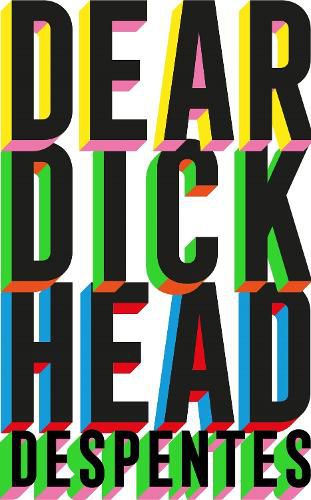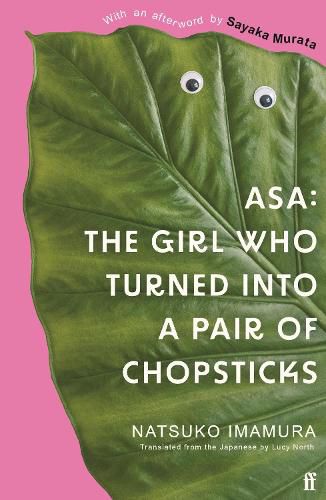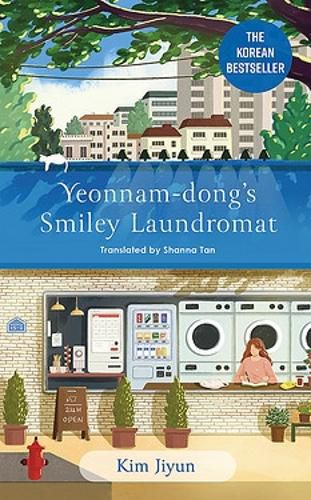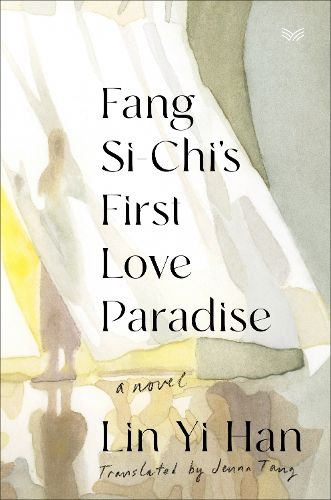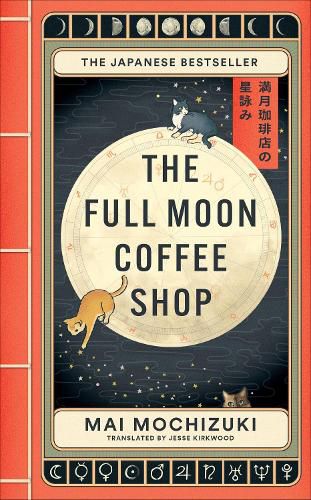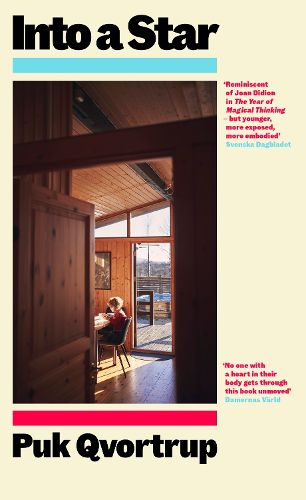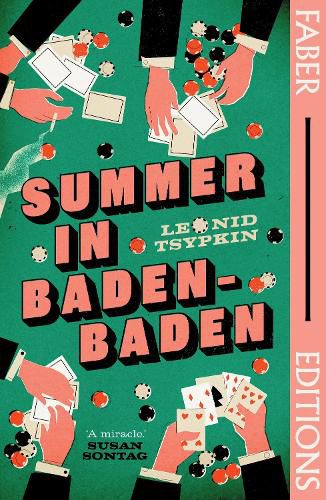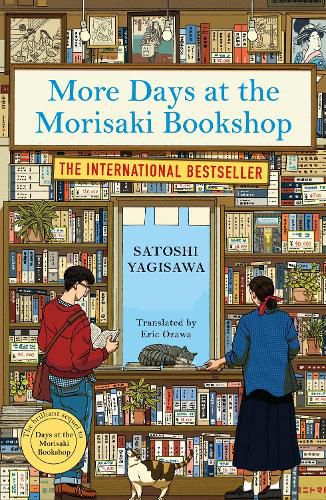This month we're reading fiction translated from: Japanese, Spanish, French, Korean, Taiwanese, Danish and Russian!
We'll Prescribe You a Cat by Syou Ishida (translated from Japanese by E. Madison Shimoda)
A cat a day keeps the doctor away . . .
On the top floor of an old building at the end of a cobbled alley in Kyoto lies the Kokoro Clinic for the Soul. Only a select few – those who feel genuine emotional pain – can find it. The mysterious centre offers a unique treatment for its troubled patients: it prescribes cats as medication.
As the clinic's patients navigate their inner turmoil and seek resolution, their feline companions lead them towards healing, self-discovery and newfound hope.
Read our staff review here.
Reservoir Bitches by Dahlia de la Cerda (translated from Spanish by Julia Sanches & Heather Cleary)
In the linked stories of Reservoir Bitches, thirteen Mexican women prod the bitch that is Life as they fight, sew, skirt, cheat, cry, and lie their way through their tangled circumstances. From the all-powerful daughter of a cartel boss to the victim of transfemicide, from a houseful of spinster seamstresses to a socialite who supports her politician husband by faking Indigenous roots, these women spit on their own reduction and invent new ways to survive, telling their stories in bold, unapologetic voices.
At once social critique and black comedy, Reservoir Bitches is a raucous debut from one of Mexico’s most thrilling new writers.
Dear Dickhead by Virginie Despentes (translated from French by Frank Wynne)
Rebecca Latte is a famous actress in her fifties, perhaps past the peak of her career. Oscar Jayack is a middle-aged, moderately successful author who, in the wake of the #MeToo movement, has been accused of sexual harassment by his former publicist-turned-feminist blogger Zoe Katana.
When Oscar insults Rebecca's appearance on Instagram, she sends a scorching reply and the pair fall into a spiral of mutual antipathy. In back-and-forth emails, they vie for the last word, finding common ground in their experiences of addiction, assessing the changing world around them as Covid locks down Paris, and reluctantly beginning to lean on one another.
Asa: The Girl Who Turned into a Pair of Chopsticks by Natsuko Imamura (translated from Japanese by Lucy North)
The startling first collection of dark, surreal, and unsettling stories from the international prize-winning author of The Woman in the Purple Skirt.
Asa tries to give her classmate a biscuit.
Nami evades her classmates' playground game of acorn-throwing.
Happy decides she's not interested in doing anything other than lying down on her sofa.
Each of these three stories begins in a reasonable place – but by the end you'll find yourself in another world altogether.
Read our staff review here.
Yeonnam-dong's Smiley Laundromat by Kim Jiyun (translated from Korean by Shanna Tan)
The Yeonnam-dong Smiley Laundromat is a place where the extraordinary stories of ordinary residents unfold. Situated at the heart of rapidly gentrifying district of Seoul, it's a haven of peace and reflection for many locals.
And when a notebook is left behind there, it becomes a place that brings people together. One by one, customers start jotting down candid diary entries, opening their hearts and inviting acts of kindness from neighbours who were once just faces in the crowd.
But there is a darker story behind the notebook, and before long the laundromat's regulars are teaming up to solve the mystery and put the world to rights.
Fang Si-Chi’s First Love Paradise by Lin Yi-Han (translated from Taiwanese by Jenna Tang)
Thirteen-year-old Fang Si-Chi lives with her family in Taiwan within a tightknit, privileged community raised to be ambitious, dutiful, and virtuous. She and neighbour Liu Yi-Ting are kindred spirits and bond over their love of learning and books. Revered teacher and serial predator Lee Guo-hua finds Si-Chi’s innocence irresistible and offers to tutor the girls for free. This is a chilling tale of grooming and its lingering trauma.
The Full Moon Coffee Shop by Mai Mochizuki (translated from Japanese by Jesse Kirkwood)
Based on the Japanese myth of cats returning favours to humans who are kind to them, 'The Full Moon Coffee Shop' is the name of a peculiar cake cafe that is run by talking cats, which has no fixed location and instead materialises unpredictably on the night of a full moon.
Under a glittering full moon, a Kyoto coffee shop with no fixed location or opening hours appears only where and when it’s needed. Serving fragrant teas, the finest coffees and delicious desserts, it is entirely run by talking cats. The coffee shop attracts people who have lost their way in life. In the middle of the night, the coffee shop’s feline guides take them on an astrological journey which forces the customers to face up to the past. As each of them uncovers their purpose, their paths become intertwined.
Into a Star by Puk Qvortrup (translated from Danish by Hazel Evan)
Puk is 26 years old, preparing for the birth of her second child, when her husband has a heart attack on his morning run. She leaves their toddler with a friend and dashes to the hospital, where Lasse lies unresponsive in a coma. He dies a few hours later.
Into a Star follows Puk and her young family for one year after this tragedy, which has shattered the ordinary life she thought she would live, as she finds her way slowly through the enormous grief and, eventually, out the other side. With remarkable dignity, candour and attention to the domestic details that make us human, Puk Qvortrup invites us into the hardest moments of her life. And she reveals, amid the devastation, a powerful thread of hope.
Summer in Baden-Baden (Faber Editions) by Leonid Tsypkin (translated from Russian by Roger Keys & Angela Keys)
Summer, 1867: Dostoevsky and his wife Anna are travelling to the German spa resort of Baden-Baden on honeymoon. Their love is ecstatic, yet the author is plagued by demons: haunted by his crimes and punishments, consumed by jealousy, gambling, and shaken by epileptic fits.
Winter, 1970s: the narrator embarks on a pilgrimage from Moscow to Leningrad to trace the footsteps of his literary hero. As the train crosses the Soviet Union, he immerses himself in Anna’s travel journal; their journeys soon become entwined.
More Days at the Morisaki Bookshop by Satoshi Yagisawa (translated from Japanese by Eric Ozawa)
The Morisaki bookshop in Tokyo is a family-run shop so packed with books that barely five people can fit inside. Takako, the niece of owner Satoru, helps after work. For the first time, she doesn’t feel lonely; she has new friends and new rituals to keep her company. As a sign of gratitude, Takako gives her aunt and uncle a trip, promising to look after the shop while they are away. Everything seems to be going well but why is Satoru behaving so strangely and what does the woman with the red umbrella want?


